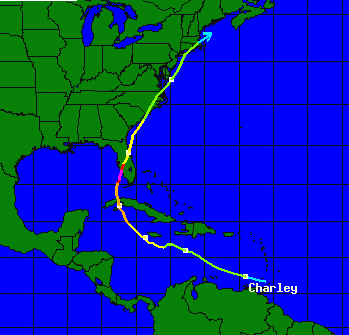Track of Hurricane Charley, August 9-15, 2004
Courtesy of USGS based on data from the National Weather Service
Hurricane Movement
Each hurricane moves across the ocean and usually hits the land too. How do we know which way a hurricane will go? Several different things control where a hurricane goes.
Global winds carry hurricanes from one place to another. In the warm tropics these winds blow from east to west. In the Atlantic, storms are carried by these winds from the coast of Africa to the Caribbean and North America.
After a hurricane crosses an ocean and reaches a continent, the winds weaken. This means that the Coriolis Effect has more of an impact on where the storm goes. In the Northern Hemisphere the Coriolis Effect can cause a tropical storm to curve to the north.
When a storm starts to move north, it moves into another type of global wind that blows from west to east. These winds move in the opposite direction from the tropical winds. This makes the hurricane move east as it travels north.
All these things can make a hurricane move in a typical path, like the one in this picture. However, not all hurricanes are typical! There are other factors that affect a hurricane's path too. Some hurricanes make very complex paths that are not at all typical.
Last modified March 31, 2009 by Lisa Gardiner.
You might also be interested in:
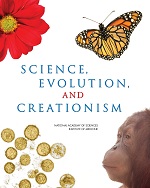
How did life evolve on Earth? The answer to this question can help us understand our past and prepare for our future. Although evolution provides credible and reliable answers, polls show that many people turn away from science, seeking other explanations with which they are more comfortable.
...more
Earth's ocean covers more than 70% of our planet's surface. There are five major ocean basins: the Pacific, the Atlantic, the Indian Ocean, the Arctic Ocean, and the Southern Ocean that surrounds Antarctica.
...more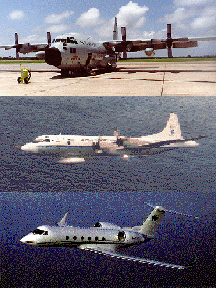
Why do the 53rd Weather Reconnaissance Squadron and the Hurricane Research Division use different airplanes? Actually, they only use two main types. The top two airplanes in the graphic, the WC-130H Hercules
...more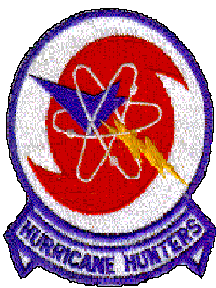
The official "Hurricane Hunters" are part of the Air Force. They fly into hurricanes to get information. Scientists use this information to make forecasts. What information do they get and why is it important?
...more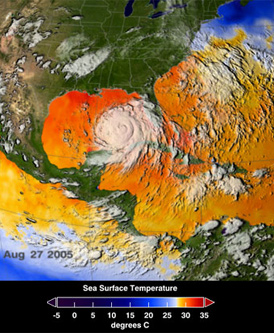
The hurricane season in the North Atlantic is particularly strong this year. And scientists predict that the storms will be getting stronger because of global warming. Follow the links below to find out
...more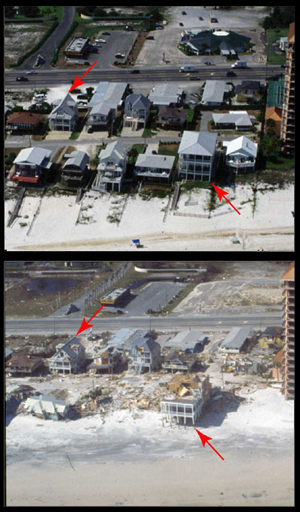
Hurricanes are powerful and can cause lots of damage. They can change natural environments. They can also damage the places where people live, work and play. When a hurricane is over the ocean, wind and
...more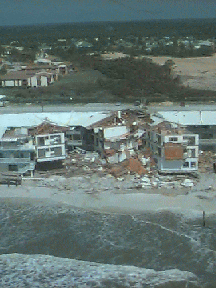
A tropical cyclone is a storm that forms in the tropics. A hurricane is one kind of tropical cyclone. In fact, it's the strongest tropical cyclone. Tropical cyclones are given names by how strong their
...more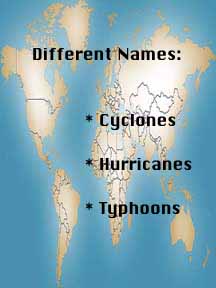
Different places in the world call tropical cyclones by different names. If you click on the image at left you will see which areas use "cyclone", which use "hurricane", and which use "typhoon" when refering
...more
